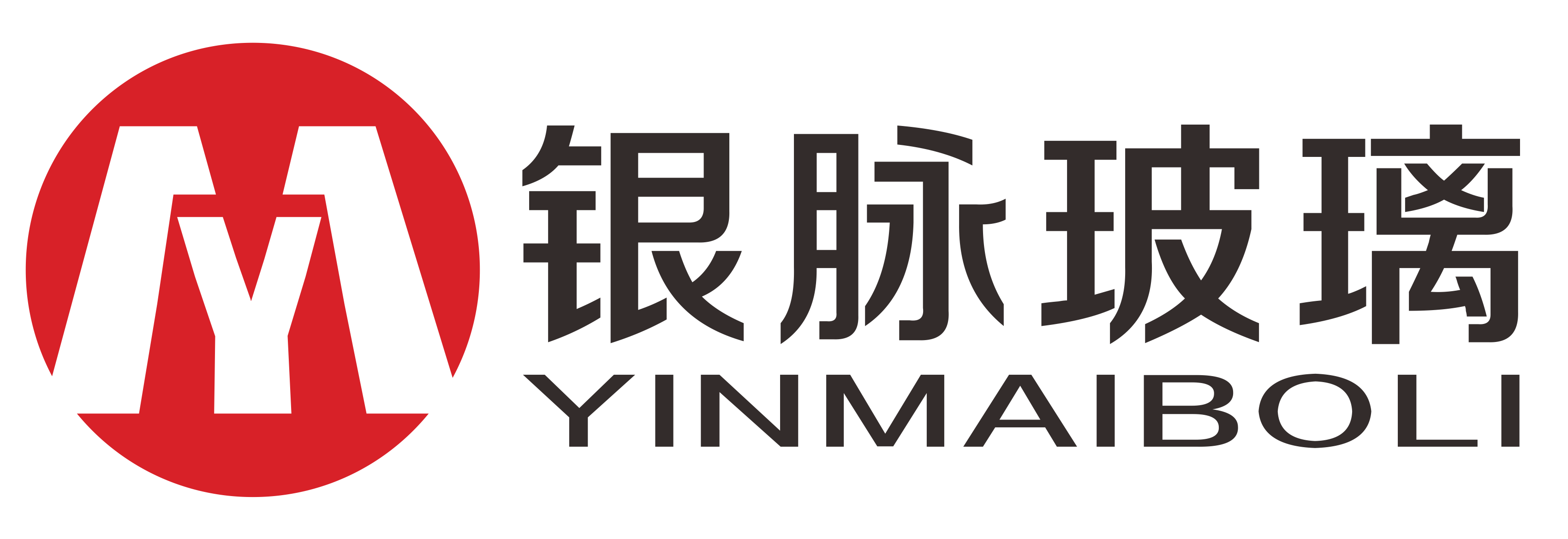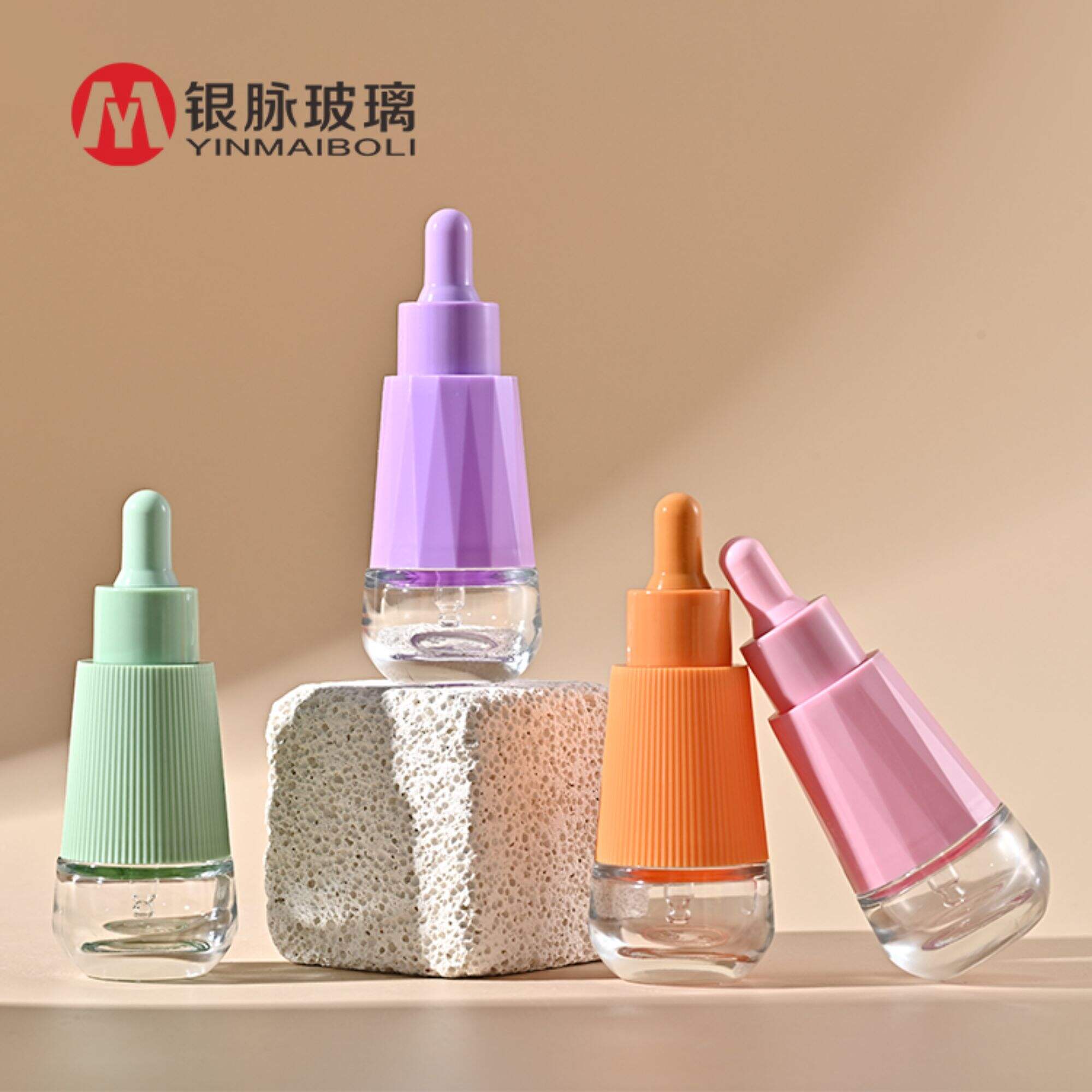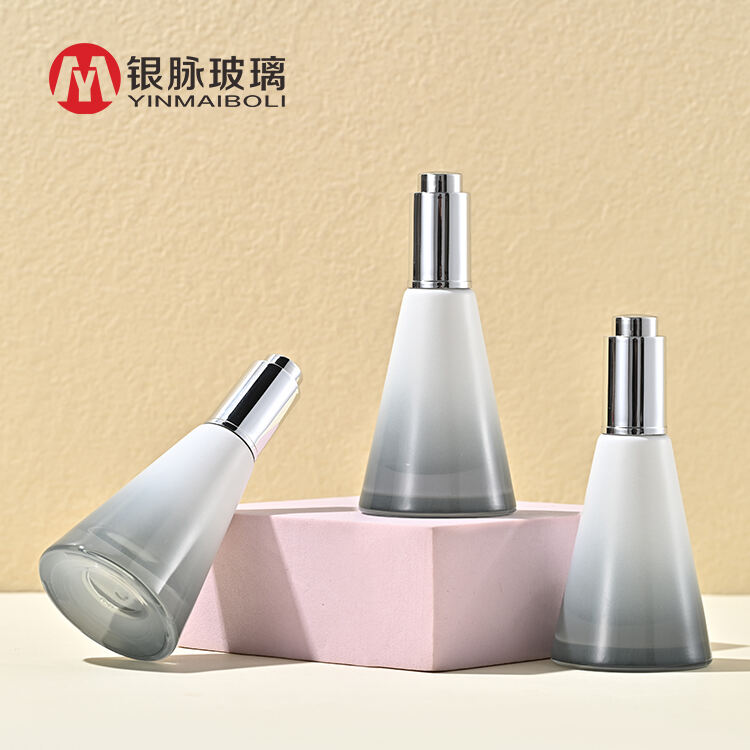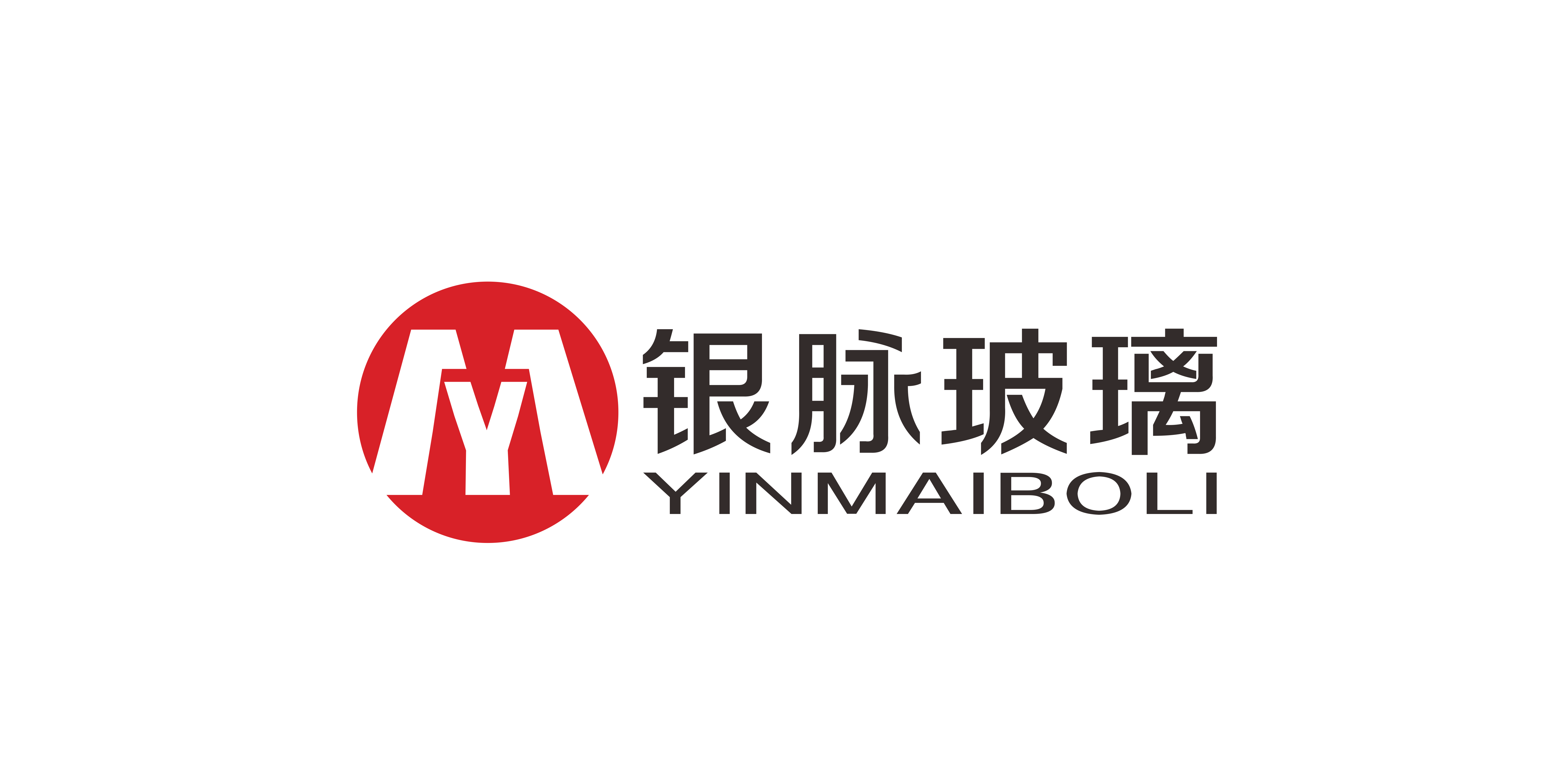Дэлгүүртэй эмчилгээний цагаан хоолны бутлуур олох: Дундад зэрэгт тохиромжтой санал хүсэлт
Дэлхийн косметик баримтын тогтвортой шинж чанар
Энэ өдөрүүдэд гоо сайхны бүтээгдэхүүний сав баглаа боодолд юу нэгэн сонирхолтой зүйл болоо байна. Ихэнх компанийн байгууллагууд өөрсдийн дуртай лосьон, кремийг хаягдал ихтэй саванд хийж байхыг хэрэглэгчид хүсэхгүй байгаа тул улам бүр ихээр устаж байгаа зөгийн сав баглаа боодлоос илүү нөгөөгөөр орчин тойрныг хамгаалах боломжийг олгодог сав баглаа боодол руу шилжин ажиллаж байна. Одоогийн хэрэглэгчид сав баглаа боодлыг ашиглаж дууссаны дараа түүнээр юу болох талаар гүнзгий анхаарал хандуулдаг тул брендүүд өөрсдийн тоглолтоо сайжруулах шаардлагатай байна. Биологийн задралтай материалын, бүрэн дахин боловсруулах боломжтой зүйлс, ахин ашиглах зориулалттай сав баглаа боодол энэ сүүлийн жилүүдэд маш их түгээмэл болсон. Дэлгүүрүүдэд дахин дүүргэх цэгүүд мөн газар чөлөө бүрт л гарч ирж байна. Энэ нь жил бүр хэдэн сая хоосон шилэн баглаа боодол хаягдалд орж байгааг бодоход ойлгомжтой юм. Энэхүү бүхэлд нь орчин тойрныг хамгаалах зүгт хийсэн шилжилт газар орныг хамгаалахад тусалж байгаа нь сайн байдал юм. Энэ нь бизнес эрхлэгчид болон хэрэглэгчдийн хувьд урт хугацаанд мөнгө хэмнэх боломжийг олгодог.
Гоо сайхны баглаа боодол энэ олон жилийн дотор томоохон өсөлттэй байх болно. Түүхий талын борлуулалт эрчимтэй өсөж буй дэлхийн тодорхой хэсэгт тухайн бүс нутаг дахь брендүүд экологийн хувьд ашигтай баглаа боодлын сонголт руу эргэж байгаагаас үүдэн тухайн бүс нутаг дахь өргөжилтөнд хувь нэмрээ оруулж байна. Хойд Америк, Номхон далайн бүс нутаг нь тэдгээрийн жишээ юм. Мэргэжлийн таамаглалаар дэлхийн зах зээл 2025 оны орчимд орлогоо олон наяд доллар хүртэл хүртэл өсгөх боломжтой байгаа тул энэ чиглэлээр ажиллаж буй компанийн хувьд маш сонирхолтой боломжууд бий болохыг зааж байна. Байгаль орчныг хамгаалах чиглэл нь зүгээр л сурталчилгаа хийх зүйл биш бөгөөд гоо сайхны салбарт одоо ихээхэн бизнесийн шийдвэрүүдийг л хөдөлгөж байна.
Онлайн худалдааны өсөлт нь бидний боодол, хайрцаглах хэмжээ болон загварыг бодох арга барилыг үнэхээр өөрчилсөн. Хүмүүс вэбээр худалдан авахдаа тээвэрлэлтийг дааж чадах, гэхдээ гэрийн нөхцөлд хадгалахад хамгийн бага зай эзлэх хайрцагтай байхыг хүсдэг. Энэ нь үйлдвэрлэгчдэд боодлын материал, хэмжээний хувьд бүхэлдээ шинэчлэлт хийх шаардлагатай болгож байна. Томоохон хэмжээгээр нийлүүлэлт захиалдаг бизнесүүдийн хувьд энэ шилжилт нь зарим хүнд асуудлуудыг бий болгодог. Тэд том захиалгын үед үнээс хэмнэх боломжийг олдог ч гэсэн хэт том хайрцаг нь хэрэглэгчдэд одоо ашиглагдаж байгаа хавтгай хайрцагтай бүтээгдэхүүнээс ялгаатай тул одоо ихэнхдээ сайн ажилладаггүй байна.
Бутыл хөрөнгийн материалын бодит байдлын чухалдаг
Бичигдсэн материалын бүтэц нь бүтээгдэхүүний өрөөнийг хадгалахад чухал, засагдахgui өндөрлөгт формулаатай бодис, сывангуудад тусгаарлагдаж болно. Косметик бичигдсэн материалын бүтэц хадгалах нь бүтээгдэхүүний амжилт, эрчимтэй байдлыг хамгаалдаг.
Хаяглалын талаар бодоход олон салбарууд энэхүү сав баглаа материалыг шил, хуванцар эсвэл төмөр зэсээр хийдэг бөгөөд эдгээр материалын өөр өөр давуу талтай байдаг. Шил нь хамгийн сайн стандарт гэж үзэгддэг ялангуяа хадгалах зүйлсийг бохирдуулалаас хамгаалахад маш сайн. Түүнчлэн шилэн савнууд дэлгүүрийн тавиур дээр сайхан харагддаг тул олон тооны премиум брэндүүд энэ чиглэлээр явдаг. Хуванцар ч мэдээж тодорхой байр суурьтай. Эдгээр савнууд маш хөнгөн жинтэй бөгөөд үйлдвэрлэхэд хямд байдаг тул томоохон хэмжээгээр бүтээгдэхүүн худалддаг компанийн хувьд маш чухал. Хуванцарын сайн тал нь түүнийг маш хялбархан янз бүрийн хэлбэрт оруулж болдог тул дизайн хийхэд илүү их бүтээлч чөлөөтэй байдаг.
Материалын чанарын баталгаажуулалтад аж үйлдвэрлэгчид хэрэглэгчийн аюулгүй байдлын дүрэм журмын дагуу үйл ажиллагаа явуулахыг хангахын тулд салбарын стандартууд чухал үүрэг гүйцэтгэдэг. Эдгээр стандартууд нь косметик орцтой материалын зохицох чанар, саармагжуулах чадвар, хугалаасны эсэргүүцлийн зааврыг агуулдаг. Ийм стандартуудыг мөрдөх нь хэрэглэгчийн итгэлийг хадгалах, аюулгүй байдалын шаардлагыг хангахад чухал юм.
Эрэлт хэмжээний захиалга хүссэн тохирох ерөнхий чадвар
Эрэлт хэмжээний захиалгуудтай холбоотой чадварын хоорондын холбогдолыг оролдоход их санаатай байна. Хамгийн их захиалгуудтай ажилладаг үйлдвэрлэгчид том хэмжээний захиалгуудыг цаг хугацаанд явахад анхаарах шаардлагатай. Эрэлт хэмжээний захиалгуудыг амжилттай боловсруулахад үйлдвэрлэлийн бодит процессыг сайжруулах, сүлжээний системийг хялбарчлах зориулж байна.
Их хэмжээний захиалгыг бэлтгэхэд шаардагдах хугацаа нь материалуудын нарийн төвөгтэй байдал, хичнээн хэмжээгээр үйлдвэрлэх шаардлагатай байгаагаас ихээр хамаардаг. Жишээ нь, стандарт хүргэлтийн үе нь хэдэн долоо хоногоос хойш хоёр сарын хугацаанд хүрч болзошгүй бөгөөд зарим тохиолдолд түүнээс ч урт байж болно. Энэ нь нийлүүлэгч компанийн үйлчлүүлэгчидтэй харилцах арга зам, бодитой хугацаа тогтоход шууд нөлөөлдөг. Чанарын нийлүүлэгчид захиалагчтай эртний үед сууж, юу хийх шаардлагатайг тодорхойлж, тал бүр юуны талаар тодорхой мэдээлэлтэй байхыг хангаж өгдөг. Тэд хоёр талын хувьд тохиромжтой төлөвлөгөөгөөр хугацаагаа зохицуулж, бүтээгдэхүүн хугацаандаа ирэхгүй үед гардаг сандарсан асуудлуудыг урьдчилан сэргийлдэг.
Худалдан авах төлөвлөгөөгөөр хангадаг бол масштаблах чухал байдаг нь эрэлт ихсэхэд компаниуд тааруулж чаддаггүй болох юм. Ихэнх бизнесүүд ирээдүйгээ бодож үзвэл одоо үйлдвэрлэж буйгаа бүтээгдэхүүнээсээ илүү ихийг хүсэж эхэлбэл юу болох вэ гэдгийг бодож байх хэрэгтэй. Үйл ажиллагааг томосгоход нь цохон унагахгүйн тулд стратегийг өөрчлөх гэсэн үг юм. Дээшээ эсвэл доошоо масштаблах чадвар нь нийлүүлэгчидтэй харилцаа тогтооход чухал нөлөө үзүүлдэг. Яагаад гэвэл хүн бүр хүлээгдэж буй хүргэлтийн өдрүүдийг биелүүлж чадахгүй гэж амлаж байхыг хүсдэггүй. Энэ асуудлыг сайн удирдаж чаддаг компаниуд нь зах зээл хэлбэлзэх үед ч бүтээгдэхүүнээ тогтвортой байлгаж чаддаг тул өрсөлдөгчдөөсөө урд түрүүлж байдаг.
Олон тооны Дроппер Бутылка Зах Зээлтэй Сонголтын Чухал Критерийн
Хүрээний Өнгөтэй УВ Хамгаалалтанд Танилцуулга
Нэгэн зэрэг дуслын шилний нийлүүлэгчийг сонгох нь энгийн шилний чанар болон цахилгаан гэрлийн хамгаалалтын онцлогт анхаарал хандуулахыг шаарддаг. Чанартай шил нь сайн харагдахаас илүү бүтээгдэхүүнийг урт хугацаанд шинэ байдалтай хадгалахад тусалдаг бөгөөд гэрэлд өртснөөр бүтээгдэхүүн мууддаг тосонд онцгой ач холбогдолтой. Шил нь тод боловч хэвийн ашиглалтын үед хагарч, эвдэрч байхгүйгээр тэсвэл зохино. Ийм шил нь бохирдлыг саатуулж, тосыг савлах үед тогтвортой байдалд нь хадгалдаг. Журнал of Applied Packaging Research-ийн сүүлийн судалгаагаар зохих цахилгаан гэрлийн хамгаалалт бүхий шил нь мөнх чанарын тос, гэрэлд мэдрэг холимогт хортой нөлөө үзүүлдэг гэрлийн долгионы уртыг нь тусгаарладаг байна. Ихэнх найдвартай үйлдвэрлэгчид олон улсын стандартын байгууллагуудын тогтоосон сертификжүүлэх ажиллагаанд дамжин шилнийгээ эдгээр хамгаалалтын шаардлагыг хангаж байгааг нь баталдаг. Эдгээр сертификатууд нь худалдан авагчдод бүтээгдэхүүн нь урт хугацаанд үр дүнтэй байж чанарын шинж чанарыг хадгалж чадна гэдгийг итгүүлдэг.
Засварлах чадвар (Друвах/Хувьцаах)
Бүтээгдэхүүний зохион бүтээл нь хүчтэй бренд байгуулахад том нөлөө үзүүлдэг бөгөөд олон арvin болон давхар хэвлэлийн сонголттой нийлүүлэгчидтэй ажиллах нь бүтээгдэхүүнүүдийг илүү тод болгодог. Зохиомол шошго, компаниийн лого, онцгой өнгөний эмчилгээ нь бренджилэлтийг дэмжихээс гадна дэлгүүрийн тавиур дээрх өрсөлдөгч бүтээгдэхүүнүүдтэй өрсөлдөхөд тусалдаг. Эдгээр зохиомол гадаад үзэмжийн хугацаа нь хийх ажлаас шалтгаалан ихээр ялгаатай байдаг ч орчин үеийн хэвлэлийн тоног төхөөрөмжтэй нийлүүлэгчид нь ихэвчлэн хэдэн долоо хоногийн дотор захиалгыг гүйцэтгэдэг. Сүүлийн үед хэвлэх технологи болон давхар материалын чанар сайжирсны дүнд илүү сайн харагдах, илүү урт хугацаагаар хадгалагдах гадаад үзэмжийг харж байна. Компаниуд илүү сайн зохиомол санаа буюу жишээ нь, гологдол лого эсвэл олон өнгөт градиент ашиглахдаа бүтээгдэхүүний байцаалтанд илүү элегант хүрээг оруулж өгдөг нь тээвэрлэлт болон урт хугацаагаар хадгалах үед ч тогтвортой байдаг.
Хамгийн бага тооны MOQ болон өмнөх хугацааны ашиг
Дусал шахаж буй шилний нийлүүлэгчийг хайх үед жижиг дунд бизнесүүдийн мөнгөн орлогоо удирдахад хамгийн багадаа захиалгын хэмжээнд ямар хэмжээгээр уян хатан байдаг вэ гэдэг нь маш чухал. Хамгийн багадаа захиалгын хэмжээнд уян хатан байдаг нийлүүлэгчид пүүсүүдэд санхүүгийн байдал, агуулахын зай хоёрын дагуу шаардлагатай хэмжээгээр л авах боломжийг олгодог тул санхүүгийн төсөв тэнцвэртэй байдаг бөгөөд илүүдэл нөөц байхгүй. Үйлдвэрлэлийн хэмжээнээс хамааран ерөнхийдөө хэд хоногоос хэдэн сар хүртэл хугацаа өнгөрдөг боловч зарим нийлүүлэгчид өөрсдөөсөө хурдан ажилладаг. Зарим тохиолдолд бусадтай харьцуулахад хүргэлтийн хугацаагаа талд нь багасгадаг. Энэ хурдны зөрүү нь түншлэлийг сонгохдоо маш чухал нөлөө үзүүлдэг, учир нь хүргэлтийн хугацаа богино байх нь үйлдвэрлэлийг тасралтгүй явуулах боломжийг олгодог. Зах зээлийн болон хэрэглэгчийн шаардлагад хурдан хариу өгөх шаардлагатай байгаа үед энэ төрлийн хариу үйлдэл нь одоогийн үед амьдралын чухал хэрэгцээ болоод байна.
Хүрээлэнтэй уур амттай арга хэмжээ
Янз бүрийн тосны найрлагатай ажиллахдаа материалтай нь зохицох чанар нь маш чухал байдаг. Тухайн тохиолдолд зарим тоснууд нь тодорхой төрлийн пластмассын хамт муу урвалд ордог. Шахаж бөмбөлөгт хийх тосонд зориулсан хэсэгтэй эхлэхээс өмнө зохих шалгалт хийх шаардлагатай. Бидний хүсч буй материал нь хугацаагаар эвдэрдэггүй эсвэл тэдгээрийн саванд химийн шинж чанарыг өөрчилдөггүй байх ёстой. Энэ шалгалтыг зөв хийснээр бохирдолын эрсдэл арилдаг. Энэ нь бүтээгдэхүүнийг хэрэглэгчдэд аюулгүй, үр дүнтэй байлгана. Ихэнх салбарууд нь энэ төрлийн шалгалтын дүрэмтэй байдаг бөгөөд тухайлбал гоо сайхны болон эмнэлгийн салбарт хэрэглэх олон төрлийн бүтээгдэхүүн хадгалах зориулалттай сав баглаа боодолд онцгой анхаарал тавьдаг. Үйлдвэрлэгчид эдгээр зааврын дагуу ажилласнаар хэрэглэгчдэд урт хугацаанд бүх төрлийн найрлагыг аюулгүй хадгалах боломжтой гэдгийг мэдэх нь тэдэнд итгэл төрүүлнэ. Энэ нь брэндийн төрөлх нэр хүндийг хамгаалахад ч тусална. Учир нь хэн ч өөрийн үнэт бүтээгдэхүүнээ хортой сав баглаа боодлын улмаас гэмтээхийг хүсэхгүй.
Стратегийн дундад орнуудын тавцангийн харилцээ
Дүндад орнуудын бүтээгдэхүүний газруудыг шинжлэх
Гадаадын түгээгчтэй хамтран ажиллах үед гоо сайхны баглаа боодлын хэрэгцээнд тохирох үйлдвэрлэлийн төвийг дэлхийн хэмжээнд олох нь маш чухал. Ази нь жишээ нь, Хятад, Энэтхэг улсууд нь томоохон эзлэхүүнийг хямдруулан үйлдвэрлэх боломжийг олгодог бөгөөд энэ нь хөдөлмөрийн зах зээл нь харьцангуй хямд байдагтай холбоотой. Европын хувьд Герман, Итали улсууд инновацийн технологи, чанарын өндөр стандартын талаар нэр хүндтэй. Гэсэн хэдий ч аль ч бүс нутаг нь тодорхой хэмжээний сул талгүй байдаггүй. Азийн үйлдвэрлэгчид нь зардлыг хэмнэнэ, гэвч хэлний ялгаа, далайн эзэнт гүйцэтгэлийн хугацаа нь хэдэн долоо хоног үргэлжилдэг. Европын улсууд нь чанарын бүтээгдэхүүнгээ хурдан хугацаанд, ихэвчлэн хоёр долоо хоногтой хүртэл хүргэдэг ч үнэ нь бусад газрынхаас хамаагүй өндөр байдаг. Компаниуд эдгээр хүчин зүйлсийг төсөв, хугацааны шаардлагатай тулгуурлан сайн харьцуулан үзэх хэрэгтэй.
Олон улсын бүс нутгуудаас эд хогшлол татаж авах нь олон төрлийн асуудалд хүргэдэг. Зарим улсуудаас импортлох үед тарифын зардал нь ашиггүй болох хүртэл хүрч болно, тухайлбал харгис худолдааны дүрэм журамтай улсуудад ийм байдаг. Тээвэрлэлтийн хуваарь байнга хугацаа дотор нь алдагдаж байгаа нь мөн бараанууд заримдаа дэлгүүрт төлөвлөсөн цагт нь хүрэлцэхгүй байгааны нэг шалтгаан юм. Гэсэн хэдий ч орон нутгийн нийлүүлэгчидтэй ажиллах нь эдгээр асуудлуудыг бууруулж чаддаг. Орон нутгийн нийлүүлэгчид нь ихэвчлэн бага нөлөө үзүүлдэг, учир нь бараагууд мянган километр зам туулахгүй байгаа учраас нийтлэг дэлхийн хэмжээнд хий гаргалтыг бууруулдаг. Мөн мөнгө нь гадаад улс руу урсахгүй орон нутгийн хүмүүсийн хооронд л үлддэг. Гэхдээ орон нутгийн олон жижиг нийлүүлэгчид том олон улсын үйлдвэрлэгчид шиг барааны ижил төрөл, тоо хэмжээг санал болгож чаддаггүйг анхаарах хэрэгтэй. Иймээс компанийн хувьд юу чухал болохыг сайн бодож шийдвэрлэх хэрэгтэй.
Газар зүүн, Орон сууцны үйлдвэрлэгчдийн үнэ-ямарчлалын шинжилгээ
Орон нутгийн болон гадаад нийлүүлэгчдийн хооронд сонголт хийхэд зардал, ашиг хоёрын талаар сайн судалж үзэх нь бизнесийн хувьд чухал. Өдөр тутмын ажиллагаандаа итгэлтэй, ажиллахад хялбар байдаг нь орон нутгийн нийлүүлэгчид юм. Мөн мөнгөний ханш эрс өөрчлөгдөх, засгийн газрын дүрэм журмын өөрчлөлт гэх мэт асуудлуудыг багасгадаг. Өнгөрсөн жилийн газар зүйн бодлого, улс төрийн хямралын үеэр компанийн ихэнх нь үйл ажиллагаагаа тасралтгүй явуулахын тулд орон нутгийн хамтрагчидтай хамт ажиллаж байсан нь энэ болон түүн төстэй тохиолдлуудын нотолгоо юм. Нөгөө талаас гадаадын нийлүүлэгчид заримдаа илүү хямд байдаг нь томоохон үйлдвэрлэлийн хүчин чадал, бага хөдөлмөрийн зардалтай холбоотой. Гэсэн хэдий ч, тамгын албан татвар, цагийн хүрээнд хийх ажил гүйлгээний цаас бичгийн ачаалал нь бага бизнесийн ихэнх нь хүлээн авахыг хүсэхгүй байдаг хүндрэлтэй асуудал юм.
Валютын хөдөлгөөн нь зүйлсийн үнэ хэдий чухал нөлөө үзүүлдэг. Орон дотоодын мөнгө нь гадаад валюттай харьцуулахад хүчтэй байвал бизнесүүдэд гадаадаас бараа авах нь илүү хямд болдог. Мөн олон тооны худалдааны дүрэм байдаг. Хилний тариф нэмэгдэж, худалдааны гэрээ солигдож, гадаадад нь өмнө үнэтэй байсан нь гэнэт дотоодод илүү сайн харагдаж эхэлдэг. Компаниуд энэ бүхэнд сайн анхаарал тавьж байх ёстой, учир нь эдгээр нь тэдгээрийн сүүлийн үр дүнгийн мөрөнд нөлөө ихтэй байдаг. Зах зээлийн нөхцөл байдал хүчингүй өөрчлөгдсөнөөр үнэ хямд байх давуу талууд хурдан арилж болно.
Урт дахь хамтран ажиллах сангуудыг байгуулах
Үйл ажиллагаагаа томруулах, тогтвортой өсөлт олох явцад ханган нийлүүлэгчидтэйгээ сайн харилцаа тогтоох нь маш чухал байдаг. Байгууллагууд харилцан итгэл үүсгэх, зөв хэлбэрээр зөрчил шийдвэрлэх арга зүйн талаар анхаарлаа хандуулж байвал тэдгээрийн ханган нийлүүлэгчдээс илүү сайн үр дүнг авах боломжтой болдог. Харилцааны суваг нээлттэй байлгах нь тал бүр нэг зорилготойгоо тэмүүлж байвал онцгой үр дүнтэй байдаг. Бодит амьдрал дахь олон жишээнүүд ханган нийлүүлэгчтэйгээ харилцаагаа сайжруулахад онцгой ашиг олохыг харуулж байна. Жишээлбэл, ханган нийлүүлэгчтэйгээ гэрээт харилцаа тогтоож,тэдэнтэйгээ сайн танилцаж буй үйлдвэрлэгчид нь илүү сайн үнэ, уян хатан төлбөрийн нөхцөлд хүрэх боломжийг олгодог.
Нийлүүлэгчидтэй сайн харилцаа тогтоох нь үйлдвэрлэлийг томруулах шаардлагатай үед компанид ихээхэн тус болдог. Бидэнтэй хамтран ажилладаг хамтрагч гэдгээс илүү зүгээр л худалдан авдаг хүмүүс гэж өөрийгөө үздэг нийлүүлэгчид нь ихэвчлэн илүү уян хатан байдаг. Захиалгууд эрэг эрэг нэмэгдэх үеийн ачаалал ихтэй үед тэд бидэнтэй хамтран ажилладаг бөгөөд заримдаа бүтээгдэхүүний чанарыг сайжруулах, бүтээгдэхүүнд орж буй материалыг орлуулах санаа саналуудыг ч гаргаж ирдэг. Ийм ажлын харилцааны ачаар олон талаар ашиг олдог. Хаягдал багасч, зогсолт багасдаг тул мөнгө хэмнэдэг. Бүтээгдэхүүний ерөнхий чанар сайжирдаг. Тэгэхээр хэрэглэгчид эдгээр ялгааг тодорхой мэдэрдэг. Өрсөлдөгчид төстэй бүтээгдэхүүнүүдийг санал болгож болох ч бид үргэлж өндөр стандартыг барьж чаддаг тул зах зээл дээрх давуу талыг олоод байгаа бөгөөд энэ нь өрсөлдөгчидтэйгээ тааруулахад хэцүү юм.
Ашиглалтын Зургаан Бутыл
30мл Шаргалзсан Хувин Серум Бутыл (Эргэлтгүй Дугуйн Загвар)
Гоо сайхны брендүүд нь тэдгээрийн гоё дүртэй бөгөөд сайн ажилладаг учраас цонхон шилэн хүзүүвч ашиглахыг дурдаг. Талбайлаг цээлийн хэлбэр нь бүтээгдэхүүндээ зузаан, орчин үеийн харагдац өгдөг тул хэрэглэгчид тухайн брендийн талаар сайн боддог. Хүмүүсийн ихэнх нь мэддэггүй зүйл бол эдгээр цонхон гадаргуунууд нандин энгийн цаашаа л ажилладаггүй бөгөөд хорт цахилгаан туяаг тусгаарлан арьсны чанарыг сайжруулах орцдыг удаан хадгалах боломжийг олгодог. Сүүлийн үед хүмүүс гоо сайхны бараан дээр илүү их мөнгө зарцуулж байгаа тул эдгээр төрлийн хүзүүвч нь сайхан бөгөөд үр дүнтэй зүйл хайж буй хэрэглэгчдийн хүртэл хүрэх цэгт орж иржээ. Эдгээр сав баглаа материалын үнийг тогтоохдоо үйлдвэрлэгчид шилний өртгийг болон үйлдвэрлэлийн явцад нэмж өгсөн онцгой загвар, бүтэц зэргийг тооцоолох ёстой. Ихэнх компанийнууд эдгээр хүзүүвчийг өндөр үнээр борлуулдаг нь материал болон гар урлалын чанар нь чанартай барааны төлбөрийг хүлээн зөвшөөрөх хэрэглэгчдийг хангадаг.
Мат Барийн 15мл Цуврал Ойл Дроппер Хоолой
Мат цагаан өнгө нь дэлгэцэн дээр цэнхэр аясыг дүрслэх бөгөөд засварын бүтээгдэхүүнүүдийг хүмүүсийн сонирхдог таван тэмдэгт мөн хөнгөн цагаан харагддаг болгоно. Энэ төгсгөлтэй арьсны тосны савнууд нь шууд л дээд зэрэглэлийн брэндийн дүр төрхийг бий болгодог. Зөвхөн сайхан харагдахыг хүсэхгүйгээр ажлын хэмнэлттэй, цаг хугацаа нь ховор байдаг хүмүүс энэ бүтээгдэхүүнд онцгой дуртай байдаг. Мөн шахаж тосоо авдаг загвар нь чухал үүрэгтэй. Одоо ашиглах хэмжээг таамаглах хэрэггүй болсон нь тасалдалгүй ариун цэврийн дүрмийг баримтладаг, хаягдалд ихэд сэтгэл зүйн хэмнэлттэй хүмүүст маш чухал. Гоё харагдах гадаад байдал нь ашиглахад таатай байдалтай хосдоход цайр, арьсны тосны салбарын олон брэндүүд энэ мат цагаан өнгийг сонгож байгаа нь ч гайхалтай биш юм.
1oz Скрин дэвсгэрлэсэн үнэт шилэн бутлуур
Зузаан шилэн хоолойнууд нь бат бөх байдал болон чанарын тухай бодит мэдрэмжийг өгдөг тул арилжааны зах зээлийн үйлчлэгчид түүнийг хүлээн зөвшөөрдөг. Эдгээр хоолойнууд нь тэдгээрийн доторхийг хамгаалах нэмэлт үүрэг гүйцэтгэх болон бүтээгдэхүүнийг бодитоор нь байгаа ёсоор нь илүү үнэтэй мэт харагдуулдаг. Компаниуд энгийн зүйлийг онцлог харагдахуйц болгохыг хүсэх үед тэдгээрийн түгээмэл сонголт бол зузаан шил байдаг. Сансрын хэвлэл нь захиалгат үйлчилгээний боломжийг нэмэлтээр нэмдэг. Брендүүд шилний гадаргуу дээрээ лого болон онцлог зураг төрхийг нь шууд байрлуулан худалдан авагчдын санах ойд бат бөх байх визуал мэдээллийг бий болгодог. Чанартай арьсны анагаахын брендүүд энэ аргыг хэрхэн хүлээн авч буйг үзээрэй, тэдгээрийн шилэн саванд ягаан өнгө болон түлхүүр хэв маягийг түгээн тархаадаг. Үр дүн нь? Дэлгүүрийн тавиур дээр байгаа бүтээгдэхүүн нь харагдах байдалд анхаарал татах болон тэдгээрийн доторхийг бодохын өмнө харагдах байдалд гүнзгий оролцдог хүмүүст анхаарал татдаг.
Цилиндр 30мл Эссенциал Ойл Пэкэжинг
Эфирийн тосны цилиндр хуванцар сав нь байгалийн бүтээгдэхүүнтэй сайн зохицдог энэ классик хэлбэртэй. Тэдгээрийн гладкийн муруй нь тос ашиглаж байх үед тэдгээрийг барьж, нарийн тодорхойгээр юүлэхэд маш дотно байдаг. Сөөгийн амьдрал нь сүүлийн үед ихээр түгээмэл болсноор олон брендүүд нөхөн сэргэдэг баглаа боодлын шийдлүүд рүү шилжин ажиллаж байна. Шилэн цилиндрүүд нь одоо хүмүүсийн хүсдэг зүйлтэй нарийвчилбал зөв зүйл юм. Одоо эфирийн тос худалдаж авах гэж буй ихэнх хүмүүс худалдан авалтаараа гарагт ямар нөлөө үзүүлж буйг анхаардаг тул эдгээр сав бол зөвхөн загварын талаас биш харин орчин үеийн байдлын талаас ч аль ч хайрцагт таарч байна. Эдгээр нь байгаль орчныг хамгаалах чиглэлээр ч ажилладаг бөгөөд шаламгай харагддаг.
Шийдэл бодох болон ялгаварлагдсан протокол
ROHS/CE/ISO Сертификатын шаардлага
Сав баглаа материалын хувьд харгалзах стандартыг үзэхэд мэдэж байх хэдэн чухал сертификат байдаг: ROHS, CE, ISO гэх мэт. Эдгээр тэмдэг нь бүтээгдэхүүнүүд дэлгүүрүүдэд хүрэхийн тулд шаардлагатай орчин үеийн болон аюулгүй байдлын тодорхой шаардлагыг хангаж байгааг хэрэглэгчдэд мөн аж ахуйн нэгжүүдэд мэдээлдэг. Жишээлбэл, ROHS нь үйлдвэрлэгчдийг материалдаа аюултай химийн бодисуудыг ашиглахаас нь сэргийлдэг. CE тэмдэг нь Европын холбооны дүрэм баримтлуудыг хангаж байгааг илтгэнэ. ISO нь компанийн үйл ажиллагааны бүх түвшинд чанарын удирдлагыг хэрэгжүүлэхийг хүсч буй байгууллагуудад хүрээ бүрдүүлдэг. Энэ стандартууд нь дундаж худалдан авагчийн хувьд үргэлж ил харагддаггүй боловч хүмүүс болон гаригийн аюулгүй байдлыг хангахад чухал үүрэг гүйцэтгэдэг.
Бүтээгдэхүүн хэрхэн мэргэжлийн гэрчилгээ авсныг хэрэглэгчид хүлээн зөвшөөрөхөд томоохон нөлөө үзүүлдэг. Бүтээгдэхүүн дээд зэрэглэлийн гэрчилгээтэй ирвэл хүмүүс илүү итгэж, хэсэггүй худалдан авдаг. Эсрэгээр, шаардлагатай баримт бичиггүй барааг ихэвчлэн татгалзаж эсвэл бүрэн үл тоомшгодог. Зарим тохиолдолд илүү хүндээр шийтгэл өгдөг байна. Өнгөрсөн жил тоглоомын үйлдвэрлэгчид аюулгүй байдлын стандартыг хангаагүйгээс бараагаа дэлгүүрээс буулгасан нь тэдэнд сая долларын хохирол учруулсныг авч үзээрэй. Шаардлагатай баталгаажуулалт авсныг зөвхөн зохицуулагчдын хүсэлтээр л биш, хэрэглэгчтэй холбоо үүсгэхэд чухал бөгөөд байгууллагыг дараа нь гарч болох зардал ихтэй асуудлаас сэргийлж болно.
Усны урсгалын шалгах, Химиа хүчдэлтийн стандарт
Хаягдлыг шалгах болон эд ангиуд нь химийн бодисын эсэргүүцэлд тэсвэл зөөлцийн чанарыг хадгалахад чухал үүрэг гүйцэтгэдэг. Үйлдвэрлэгчид баглаа боодол нь хаягдал болон хорт бодисуудын эсэргүү тэсвэл зөөлцийг шалгахын тулд хэд хэдэн аргыг ашигладаг. Сорох туршилт болон хэлийн хайгуулын төхөөрөмжийг ашиглан тээвэрлэлт болон хадгалалтын үед сав баглаа боодол сайтай битүүмжлэгдсэн байгаа эсэхийг тогтоодог. Химийн эсэргүүцэл нь тогтворгүй нэгдлүүд эсвэл гадны орчинтой урвалд орж болзошгүй бүтээгдэхүүнүүдийг хадгалах үед хамгийн чухал байдаг. Энэ төрлийн бүтээгдэхүүнүүдийн хувьд энэ асуудлыг зөв шийдэх нь зөвхөн харилцаац хуулийн шаардлагыг биелүүлэхээс илүү бүтээгдэхүүний аюулгүй байдал болон хадгалалтын хугацаанд шууд нөлөөлдөг.
Сав баглаа хэрхэн задардаг вэ? Гэдгийг мэдэх нь бүтээгдэхүүн хорогдохоос сэргийлэх, нийт системээ найдвартай байлгахад тусалдаг. Хэрэв савны сэлбэстэй хэсэг нь хүчтэй биш эсвэл хаалт нь зөв ажиллахгүй бол сав баглаа нь тогтвортой байдалгүй болно. Иймээс компаниуд бүтээгдэхүүнээ авч явахаасаа өмнө сав баглааныхаа шалгалт хийлгэх шаардлагатай байдаг. Ихэнх нь ASTM стандарт шиг аж үйлдвэрийн зааварчилгааны дагуу чанарын шалгалтаа хийдэг. Эдгээр шалгалтууд нь тээвэрлэлт эсвэл хадгалалтын явцад сав баглаа тэсвэрлэж чадах эсэхийг баталгаажуулдаг. Зөвхөн зүйлсийг асгахаас сэргийлэхээс гадна сайн шалгалт нь хэрэглэгчийн итгэлийг бий болгодог, учир нь хүмүүс худалдаж авсан бүтээгдэхүүнээ бүхэл бүтэн хүрэхийг хүсдэг. Нэг ч асгалтын асуудал нь компанийн төрөөлөлд их хохирол учруулж болзошгүй тул зөв шалгалтанд цаг хугацаагаа зарцуулах нь удаан хугацаанд ашигтай байдаг.
Эрдэнэ хэрэглээний баримтлагч малgas инициатив
Сүүхийн баглаа боодлын боловсролт хөгжлийн талаарх асуудал сүүлийн үед хэрэглэгчдийн ногоон орчин тойргоор шилжих сонирхол нэмэгдсэнээр халуурч байна. Компаниуд боодлын хаягдлыг бууруулахын тулд биологийн задралтай материалыг эсвэл дахин боловсруулах боломжийг сайжруулах замаар шинэ санаа бүтээж байна. Мөн энэ салбарт шинэ бодлого шаардлагатай байна. Одоо зарим компаниуд юу хийж байгааг үзье, тэд жижиг савандаа PLA (полилактийн хүчил) болон дахин боловсруулсан PET пластик ашиглан сорьж байна. Эдгээр материалын тусламжтайгаар бүтээгдэхүүний чанарыг алдагдуулахгүйгээр хаягдлын газрын бохирдолыг бууруулах боломжтой.
Тоон мэдээллүүд нь хүмүүс дэлгүүртэй худалдах үедээ тогтвортой баглаа боодол сонгож байгааг харуулж байна. Сүүлийн үеийн судалгаагаар мөн сонирхолтой юм бага зэрэг олдсон байна – дэлгүүрт худалдаж авдаг хүмүүсийн ойролцоогоор 70 хувь нь эрүүл мэндэд сайн бүтээгдэхүүн дээр илүү мөнгө зарцуулахыг хүсдэг байна. Энэ нь одоогийн байдлаар хүмүүсийн орчин тойрны асуудалд хэр их анхаарал тавьж байгааг харуулж байна. Бизнесийн салбарт ажиллаж буй эко-анхдагчид өрсөлдөгчдөөсөө ялгарч харагдах нь энгийн зүйл болж байгаа бөгөөд орчин тойрныг хамгаалахад ч тусалж байна. Ирээдүйг харвал, үйлдвэрлэгчдийн бүтээлч санаа болон хэрэглэгчдийн бодит оролцоо нь баглаа боодлын шийдлийг цаашид орчин тойрныг хамгаалах чиглэлд түлхэх болно.








